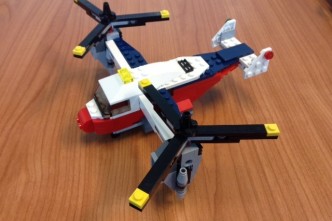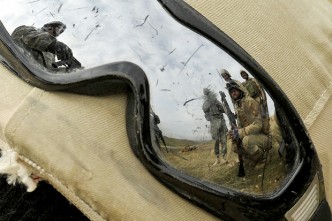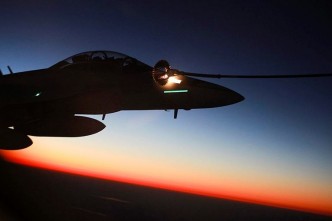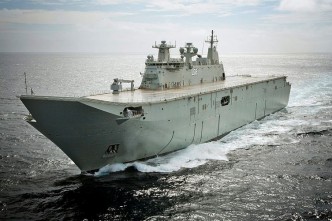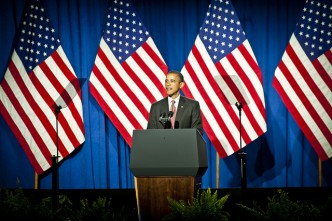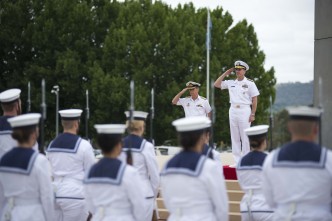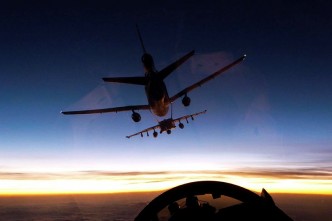This week’s installment covers unexplained wealth, the ACC and gangs, anti-bikie laws, cybercrime in Australia, CVE and the Boston Marathon bomber trial. Unexplained wealth: revenue or effect? While the Australian Government works through the options …
Concepts are long-lived in the world of strategy—so long-lived that we need to revisit them periodically to confirm that their meaning hasn’t shifted. Lately, I’ve started thinking that the notion of a ‘second nuclear age’ …
In what was a big week for Canberra international cyber policy folk, in addition to ICPC’s workshop in KL, last week also saw the inaugural meeting of the Australia–Japan Cyber Policy Dialogue. The meeting was …
I’ve often argued that the best predictor of the ADF’s future force structure is the current one. In other words, it’s much more likely that today’s platforms and capabilities will be replaced by something that …
Welcome to Rapid Fire, a weekly wrap of recent developments in international land warfare, to run alongside other regular ASPI updates like the long-running Cyber Wrap and the more recently added Sea State and The Beat. …
In an oped piece published today I’ve focused on the issue of safeguarding Australian school children from the risks of radicalisation and extremism. I’d like to add four extra thoughts on this issue. First, in …
We’re excited to launch a new weekly update, Flight Path, that’ll chart the major developments and debates in airpower and space technology. Opening this week’s post is news on the F-35. On 27 January, RAAF Squadron …
As 2014 came to a close, the Strategist hosted a debate on the potential for STOVL jets to operate from the RAN’s new LHDs. That debate followed on from an ASPI Strategic Insights Paper that …
The Obama administration’s new National Security Strategy (NSS) aims to provide a comprehensive guide as to how the United States intends to secure its national interests and global position. It’s long overdue given that the …
I think the Option J scenario has finally reached some equilibrium – competitive evaluation it is. But I do wonder at suggestions that we should do a hybrid build or build overseas and then fit …
Submarines were the big story in Australia last week, and there was a great deal of coverage focusing on the political dimensions of that story in the Aussie press. The Prime Minister ruled out an open tender …
Trend stories are always about the warmth of the water and the health of the frog. How close to boiling is the water, how much capacity does the frog have to respond? Asia’s darkest trend …
We’re keeping your Black Friday screens bright with infographics of the conflict in Syria, private military security companies, China’s military, India and Australian uranium, Fatboy Kim and more. The Institute for the Study of War …
The government doesn’t seem to understand the words it has been saying on submarines. It has committed to a ‘competitive evaluation process’ for the future submarine project—a term not used in defence circles—and some seem …
A soap opera typically has a number of common features: forced characters, somewhat unbelievable; a plot in which dramatic events occur frequently but the story itself doesn’t reach any sort of conclusion; a familiar setting …
It’s hard to fathom how the extremist’s sales pitch works when we continue to hear reports of daesh atrocities against innocent civilians, including enslavement and rape of women, mass executions—including of their own fighters who’ve …
We’re rapidly getting down to the endgame in the nuclear negotiations between Iran and the P5+1. The end of March looms as a real deadline—at least for a political agreement which would subsequently have to …
Of the many issues raised in Prime Minister Peter O’Neill’s address to last week’s summit on how he intends to manage the headwinds buffeting Papua New Guinea’s social and economic progress, six sentences on West …
This week on The Beat, we look at the fast-tracked treaty concerning MH17, the Silk Road conviction, more cybercrime, collaboration to counter organised crime and transnational terrorism, the US National Security Strategy and developments in …
Late last month, Ben Schreer introduced ASPI’s upcoming international conference on Australia’s Future Surface Fleet. In doing so, he observed that many factors—strategic, operational, international and industrial—will shape decisions about the Navy’s future surface fleet. …





